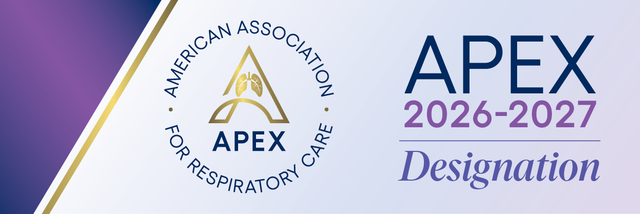
By Debbie Bunch
October 20, 2025
New and Improved Wearable to Track Coughs
Tracking how often patients with chronic respiratory disease cough could be a good way to assess their conditions and intervene early when an exacerbation seems likely. But so far, technology to accurately detect coughing has fallen short because wearable devices intended for that purpose often mistake other sounds, like throat clearing, moaning, and sneezing, for coughs.
Researchers from North Carolina State University are using feedback collected from a new type of wearable device to assess coughs and help solve that problem. In addition to collecting audio data, the device, which is affixed to the patient’s chest, also includes an accelerometer that can capture the sudden movements often associated with coughing.
While the accelerometer cannot by itself determine if someone is coughing because other normal activities like sneezing and laughing also cause chest movement, combined with the audio data, the researchers believe it can make a difference.
Tests conducted in the laboratory found the new device was more accurate than previous devices aimed at identifying coughing, with fewer false positives.
“This is a meaningful step forward,” said study author Edgar Lobaton. “We’ve gotten very good at distinguishing coughs from human speech, and the new model is substantially better at distinguishing coughs from nonverbal sounds. There is still room for improvement, but we have a good idea of how to address that and are now working on this challenge.”
The IEEE Journal of Biomedical and Health Informatics published the study.
Read Press Release
Read Abstract

Mucus Plugs Linked to Higher Risk for AECOPD
Should more attention be focused on the mucus plugs (MPs) common in people with COPD?
Chinese researchers publishing in CHEST asked that question in a study involving 194 outpatients with a mean age of 66.7 years who had been free from an acute exacerbation of COPD (AECOPD) for the past four weeks. All underwent CT scans to assess for MPs, which were scored from 0 to 18. Plugs were classified into one of three groups based on the number of segments in which they were found: 0, 1-3, and 4 or more.
Results showed:
- 22% of the participants had plugs in 0 lung segments, 35% had plugs in 1-3 segments, and 43% had plugs in 4 or more lung segments.
- At least one moderate-to-severe acute exacerbation was seen in 30% of the participants during the one-year follow-up period, affecting 12%, 25%, and 44% of those with MPs in 0, 1-3, and 4 or more lung segments, respectively.
- Participants with MP scores of 4 or more had worse COPD assessment test scores and dyspnea scores.
- Those who had experienced a severe acute exacerbation within the previous 12 months had a two-fold risk of future moderate-to-severe exacerbations, but having an airway MP was associated with a four-fold higher likelihood of future moderate-to-severe exacerbations.
The authors suggest MPs may trigger exacerbations by causing local hypoxia, which in turn can lead to inflammation and airway obstruction.
They write, “Regardless of the patient’s smoking status, history of acute exacerbations, or GOLD stage, clinicians should prioritize the identification of airway MPs on CT scans and implement timely interventions to mitigate the increased risk of acute exacerbations.”

Kids with Mental Health Issues May Not Get the Tobacco Cessation Support They Need
Public health experts have long known that keeping kids from trying tobacco products is a key weapon in the battle against tobacco addiction.
According to investigators from the University of California, Davis, health care professionals are falling down on the job.
They analyzed data from the 2022 National Youth Tobacco Survey, which also asks questions about the mental health of middle and high school students. Responses were collected from more than 18,000 students, with 47.6% of kids reporting some level of psychological distress over the past 15 days. Among these kids, 48.9% were screened for tobacco use, and 47.2% received advice on avoiding these products.
Severe psychological distress, which puts kids at significantly higher odds of using tobacco products or e-cigarettes, was reported by 12.5%. Nearly double the number of kids in this group reported using tobacco products in the past month when compared to kids who did not report severe mental health issues, 18.4% vs. 7.7%.
While the kids with severe mental health issues were 42% more likely to be screened, higher levels of distress did not lead to a greater likelihood they would receive advice to quit tobacco products.
The authors believe these results call for a greater commitment to tobacco prevention and treatment in youth behavioral health programs.
“This is a missed opportunity,” said study author Shichen Zheng. “Youth who are struggling emotionally are more likely to turn to tobacco products, including e-cigarettes, as a way to cope. Health professionals can play a key role in prevention and treatment, but they need to go beyond just asking — they need to offer guidance and assistance.
Pediatrics Open Science published the study.






